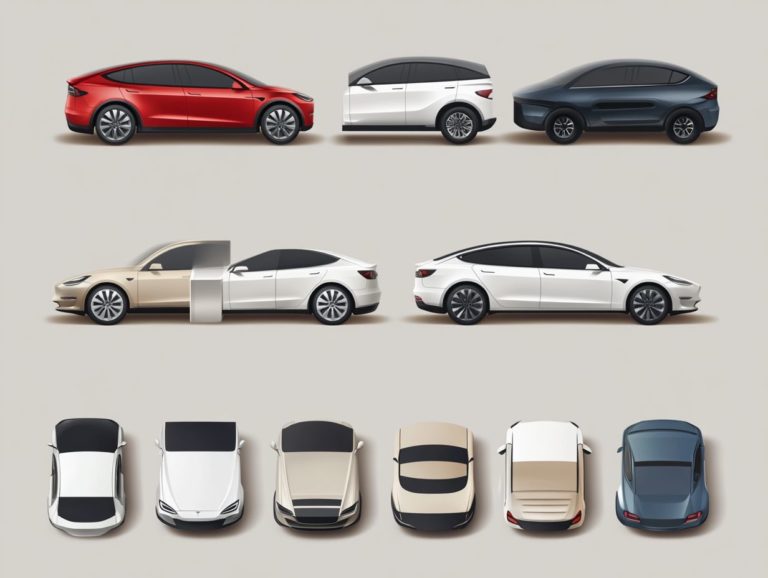Feature Breakdown: Hybrid vs. Electric Vehicles
In today s world, embracing sustainable transportation is more important than ever. With hybrid and electric vehicles (EVs) at the forefront of this movement, understanding their distinctions is essential for making an informed choice.
This article delves into key aspects, covering everything from environmental impact and cost considerations to performance, charging convenience, and maintenance.
Whether you re eager to learn about emissions or the overall driving experience, this information will empower you to navigate the options and discover the vehicle that aligns perfectly with your lifestyle and values.
Contents
- Key Takeaways:
- Understanding Hybrid and Electric Vehicles
- Environmental Impact of Hybrid and Electric Vehicles
- Cost Considerations
- Performance and Driving Experience
- Charging and Refueling
- Maintenance and Repairs
- Choosing the Right Option
- Frequently Asked Questions
- What is the main difference between hybrid and electric vehicles?
- Do hybrid and electric vehicles have similar features?
- What are the benefits of owning a hybrid vehicle?
- Are electric vehicles more environmentally friendly than hybrid vehicles?
- What is the driving range of hybrid and electric vehicles?
- Can I save money by switching to a hybrid or electric vehicle?
Key Takeaways:
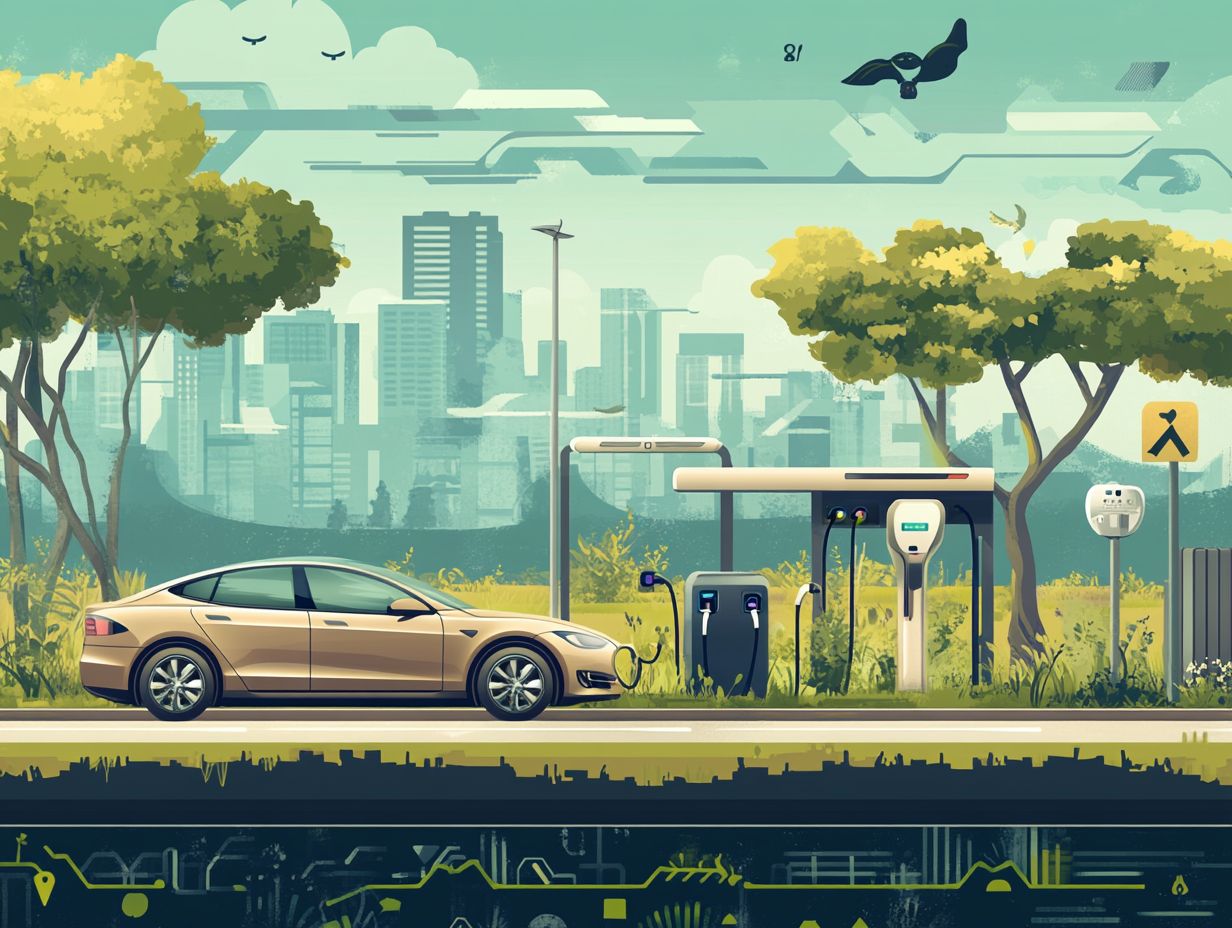
- Hybrid and electric vehicles differ in power sources and environmental impact, with electric vehicles emitting fewer pollutants and using less energy.
- While upfront costs for these vehicles may be higher, long-term savings in fuel and maintenance can make them a more cost-effective option.
- Electric vehicles offer faster acceleration, quieter operation, and require less maintenance compared to hybrid vehicles.
Understanding Hybrid and Electric Vehicles
Understanding hybrid and electric vehicles is essential in today s automotive landscape, especially as you, like many consumers, seek alternatives to traditional gasoline engines.
Models such as the Tesla, Hyundai Ioniq 5, Jeep Wrangler 4xe, Toyota Prius Prime, Honda Insight, and Chevy Bolt offer a range of benefits, from impressive fuel economy to reduced emissions and enhanced performance.
Hybrid vehicles blend internal combustion engines with electric motors, while battery electric vehicles operate solely on electric power. This makes them important for discussions about environmental sustainability and the future of personal transportation.
Explanation of Key Differences
The key differences between hybrid cars and electric cars revolve around their power sources and efficiency. Hybrid vehicles cleverly combine gasoline engines with electric motors, while electric vehicles run entirely on stored electrical energy.
Hybrid cars integrate both systems, allowing the internal combustion engine to engage when maximum power is essential, while the electric motor assists during low-speed operations. This combination significantly boosts fuel economy and reduces emissions, making hybrids appealing for many drivers.
On the other hand, electric cars rely solely on their battery packs for propulsion, delivering a quiet and smooth driving experience. However, to make long journeys practical, they do depend on a robust charging infrastructure.
While hybrids prioritize efficiency with their dual power approach, electric vehicles champion sustainability by exclusively harnessing clean energy sources.
Environmental Impact of Hybrid and Electric Vehicles
The environmental impact of hybrid and electric vehicles is a crucial factor to consider, especially as the world confronts urgent climate challenges and seeks sustainable transportation solutions.
Unlike traditional gasoline engines that emit high levels of pollution, hybrid vehicles significantly lower overall emissions by integrating electric motors. Battery electric vehicles promise even greater reductions in environmental footprints particularly when paired with renewable energy sources like solar power.
Embracing this shift towards cleaner vehicles reflects a commitment to achieving cleaner air and a healthier planet, ultimately transforming the automotive landscape for the better.
Comparing Emissions and Energy Efficiency
When you compare emissions and energy efficiency, electric vehicles clearly take the lead over hybrids. With zero tailpipe emissions and a reliance on clean energy sources, they set a high standard, while hybrids still depend on gasoline engines that produce fuel emissions.
Electric vehicles achieve remarkable fuel economy ratings, often reflected in MPGe (miles per gallon equivalent), which measures how far a vehicle can travel using the energy equivalent of a gallon of gasoline. It’s impressive, to say the least.
On the flip side, hybrids though innovative with their blend of electric and gasoline power can only curb emissions to a certain degree. They still emit greenhouse gases during operation, especially when running on gasoline. This can drag down overall energy efficiency metrics.
For consumers keen on minimizing their carbon footprint, fully electric options present the most sustainable choice, particularly as renewable energy sources become more widely available.
Cost Considerations
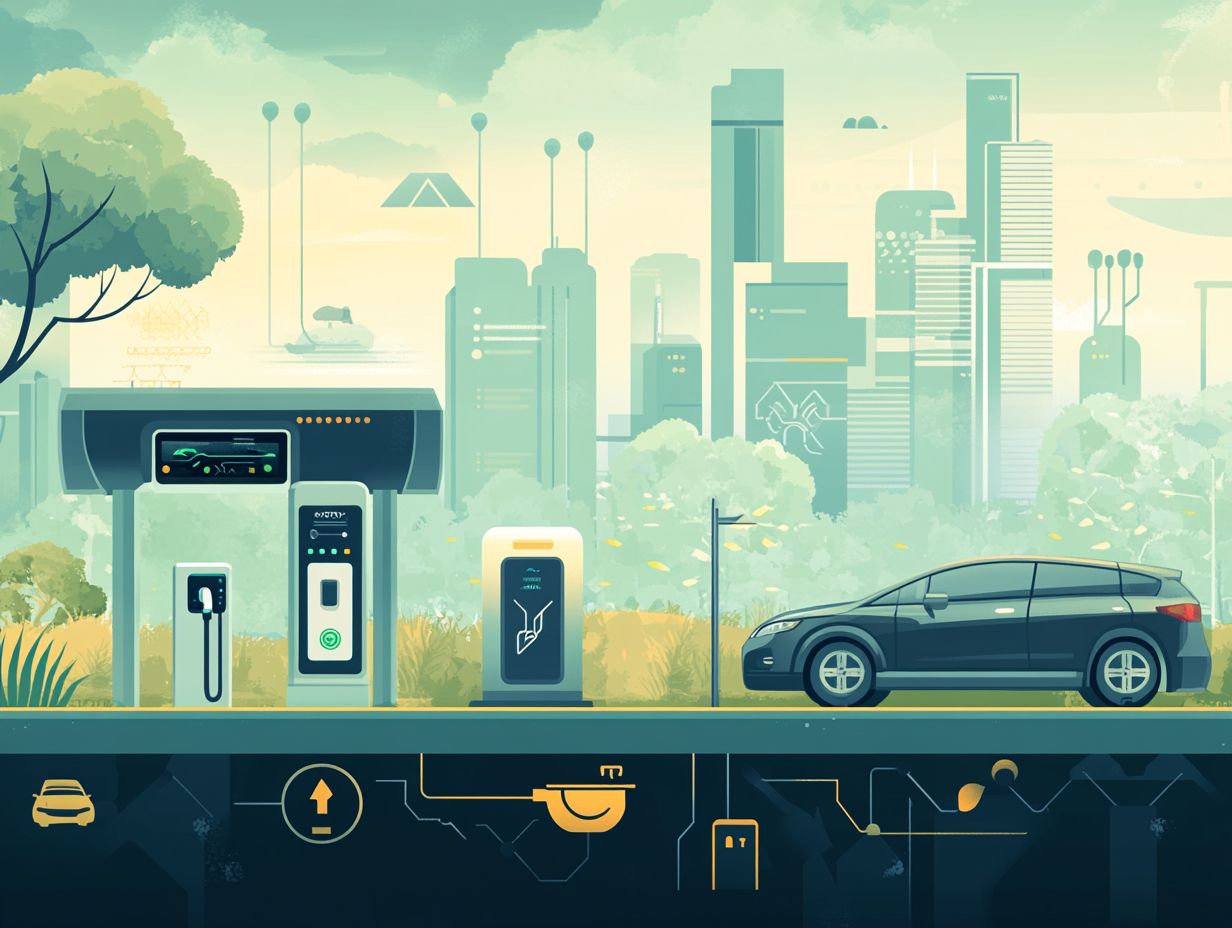
Cost considerations are pivotal in your decision-making process when it comes to purchasing either hybrid or electric vehicles. Make sure to consider them against the exciting long-term savings waiting for you!
While hybrid vehicles often come with lower initial price tags compared to some battery electric options, the potential for substantial long-term savings thanks to reduced fuel costs, state incentives, and various rebates can make electric vehicles the more attractive choice overall.
Electric vehicles usually incur lower maintenance costs because they have fewer moving parts compared to hybrid or gasoline engines, ultimately influencing your purchasing decision.
Upfront Cost and Long-term Savings
Evaluating upfront costs against long-term savings is crucial when deciding between electric vehicles and hybrid vehicles. Factors like fuel costs and maintenance expenses significantly impact your total cost of ownership.
Electric vehicles might seem pricier upfront, but the savings you’ll enjoy later can be truly rewarding! They generally require less energy to operate than hybrids, which can be a game-changer for your wallet.
Additionally, the reduced maintenance costs associated with electric models can enhance your overall savings. As for car insurance, rates can fluctuate; hybrids often enjoy lower premiums due to their fuel efficiency and solid safety ratings, making them an appealing choice for the cost-conscious buyer.
Grasping these factors offers you a clearer perspective on how each vehicle type aligns with your budget, enabling a well-informed decision.
Performance and Driving Experience
Performance and driving experience are key factors that differentiate hybrid vehicles from electric ones. Electric vehicles offer instantaneous torque for quicker acceleration and a quieter ride, while traditional hybrids blend internal combustion engines with electric motors, providing a different experience.
Grasping these performance nuances will enable you to select the vehicle that aligns perfectly with your driving preferences and lifestyle.
Acceleration, Handling, and Noise Levels
Acceleration, handling, and noise levels greatly affect your driving experience in electric and hybrid vehicles.
For instance, electric vehicles like the Tesla Model 3 can sprint from 0 to 60 mph in just 3.1 seconds. This rapid acceleration is due to their quick power delivery.
Hybrids, like the Toyota Prius, usually offer more gradual acceleration due to their reliance on both gas and electric power sources. This difference can transform your driving experience!
When it comes to handling, electric vehicles often have a low center of gravity, enhancing stability and control. Hybrids may struggle with turns due to their heavier internal components.
Noise levels matter too. Electric cars provide a quiet cabin experience, unlike the louder engine sounds of hybrids, affecting your comfort on the road.
Charging and Refueling
Charging and refueling are essential considerations when exploring electric and hybrid vehicles. The infrastructure for charging stations is expanding, making life easier for electric vehicle owners.
Unlike the straightforward process of refueling with gasoline, electric vehicles depend on access to charging stations, which can vary in power levels and availability. Understanding these differences will help you make informed decisions about your next vehicle purchase.
Convenience and Accessibility
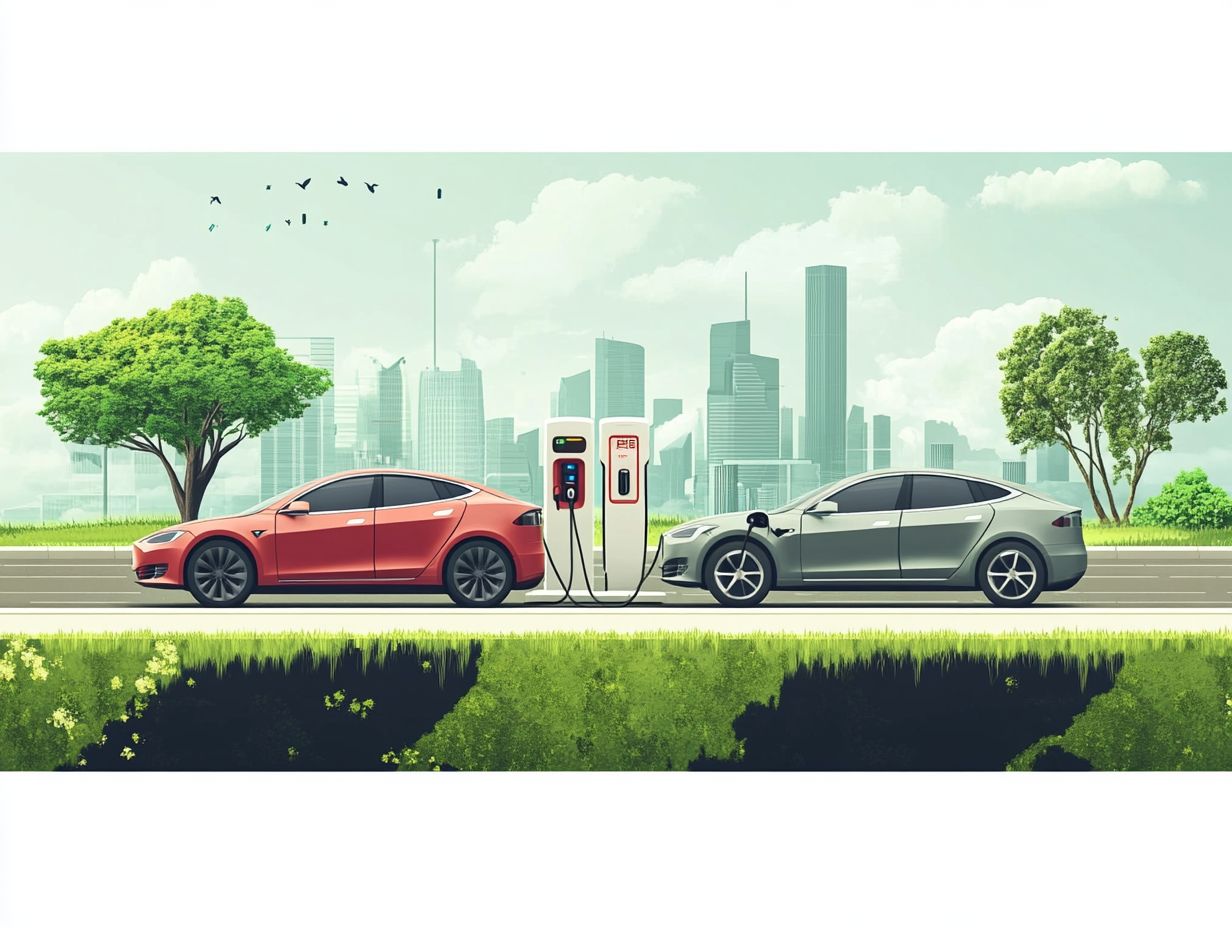
Convenience and accessibility play crucial roles in your decision-making process when considering electric and hybrid vehicles.
The availability of charging stations can vary widely from one region to another, affecting how easily you can access power sources for your vehicle. In urban areas, charging stations are often found in shopping centers and public parks, making it convenient to charge while you’re out.
Rural areas, however, may present a different story, with fewer charging facilities which could pose challenges for electric vehicle adoption.
This highlights the significant advantage of home charging for electric vehicles, allowing you to plug in overnight with ease. Refueling a hybrid vehicle generally mirrors the traditional experience at gas stations. While that familiarity can be comforting, it doesn’t match the convenience or cost savings of charging at home.
Maintenance and Repairs
When considering options between electric and hybrid vehicles, maintenance and repairs are crucial factors that can significantly influence your decision.
Electric vehicles typically demand less maintenance due to their simpler design and fewer moving parts. On the other hand, hybrid vehicles, which combine traditional internal combustion engines with electric components, may require more attention.
Understanding the potential maintenance needs for each option can provide valuable insights as you navigate your purchasing journey.
Cost and Frequency of Maintenance
The cost and frequency of maintenance are vital factors that can vary significantly between hybrid vehicles and electric vehicles. These differences ultimately influence your overall cost of ownership.
For instance, hybrid vehicles generally require routine servicing, including oil changes and checks on the internal combustion engine components. This can lead to increased parts and labor costs over time.
Electric vehicles mainly focus on maintaining the battery and updating software. This results in less frequent servicing.
Hybrids may have more frequent expenses because they use both a gasoline engine and an electric system. In contrast, electric vehicles could have higher initial costs for battery replacements. However, they often demonstrate greater long-term reliability.
Understanding these different maintenance dynamics helps you appreciate how they impact not only your immediate expenses but also the lasting value of your investment in a hybrid versus an electric vehicle.
Choosing the Right Option
Selecting the ideal choice between hybrid and electric vehicles demands thoughtful consideration of multiple factors, such as your driving habits, budget, and personal preferences.
As a potential buyer, carefully evaluate the advantages of lower fuel costs, reduced environmental impact, and varying maintenance needs in relation to your lifestyle requirements. Understanding these factors helps you make the best choice for your lifestyle!
Factors to Consider and Personal Preferences
When weighing the choice between hybrid vehicles and electric vehicles, several pivotal factors and personal preferences come into play, significantly shaping your decision.
Among these, driving range stands out as a critical consideration. Assess how far you typically drive each day and whether long trips are a regular part of your routine.
Budget constraints are also vital; while electric vehicles might have higher upfront costs, they often come with lower operating expenses in the long run.
Let s not overlook the environmental impact many consumers are drawn to the reduced carbon footprint electric models provide. Convenience factors, such as the availability of charging stations and maintenance requirements, can also influence your preferences.
Additionally, personal tastes, such as brand loyalty or a desire for specific features like advanced technology or exceptional safety ratings, may guide you in selecting the perfect vehicle that aligns with your lifestyle.
Frequently Asked Questions
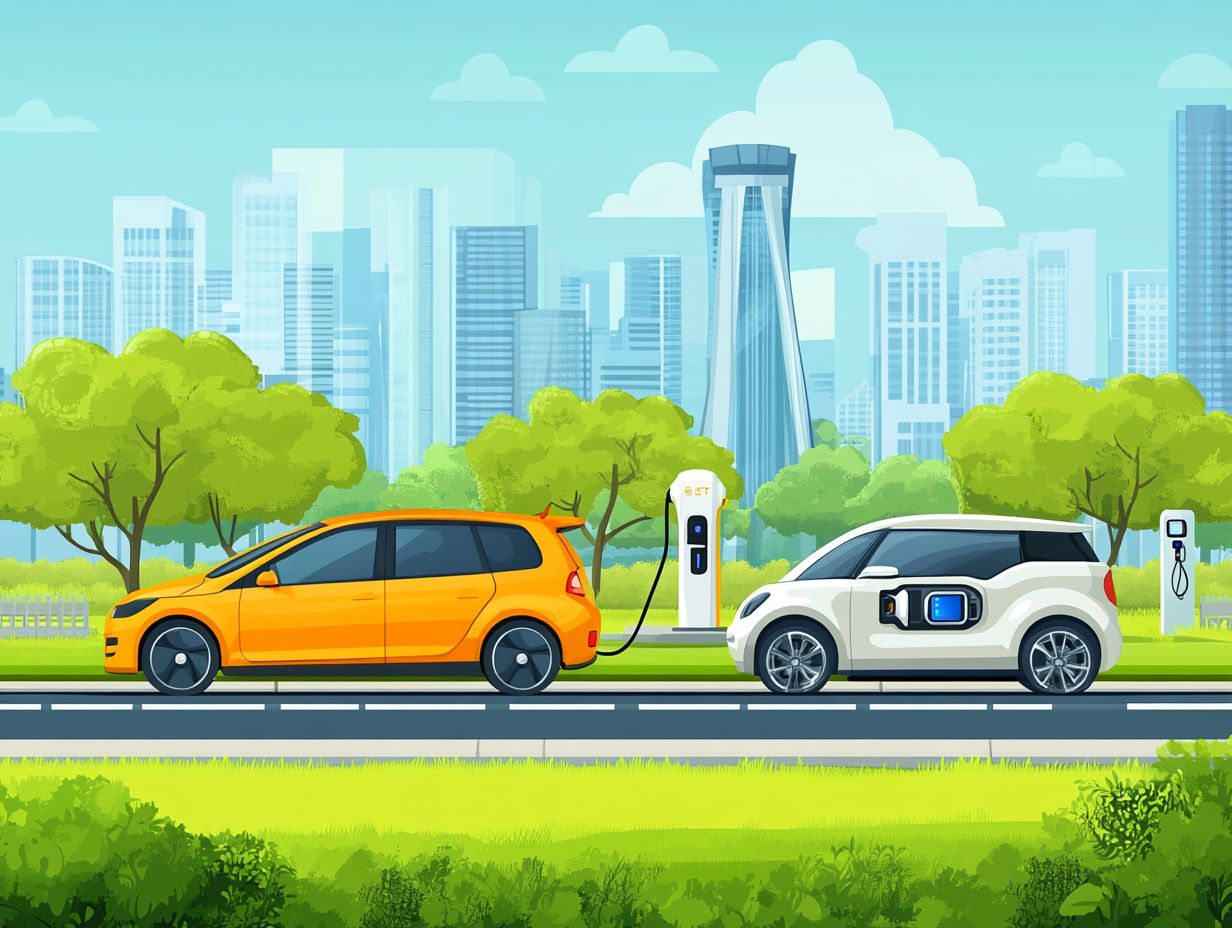
What is the main difference between hybrid and electric vehicles?
The main difference is in the power source. Hybrid vehicles use a combination of a traditional gasoline engine and an electric motor, while electric vehicles run solely on electricity.
Do hybrid and electric vehicles have similar features?
Yes, both types have similar features like regenerative braking, energy-efficient tires, and aerodynamic designs. However, the main difference lies in their power sources and overall environmental impact.
What are the benefits of owning a hybrid vehicle?
Hybrid vehicles offer several benefits, including improved fuel efficiency, lower emissions, and potential tax incentives. They also have a longer driving range compared to electric vehicles.
Are electric vehicles more environmentally friendly than hybrid vehicles?
Yes, electric vehicles are considered more environmentally friendly than hybrids because they produce zero emissions and do not rely on gasoline, which contributes to air pollution.
What is the driving range of hybrid and electric vehicles?
A hybrid’s driving range depends on how large its gasoline tank is and how powerful its battery is. Electric vehicles, on the other hand, have a limited range and typically need to be recharged after around 200-300 miles of driving.
Can I save money by switching to a hybrid or electric vehicle?
Switching to a hybrid or electric vehicle can save you money over time. They typically have lower fuel and maintenance costs than traditional gasoline vehicles.
Many states and countries also offer tax incentives for buying eco-friendly vehicles. This can further help you save money. By making this switch, you’re not just saving money you’re also helping the planet!





